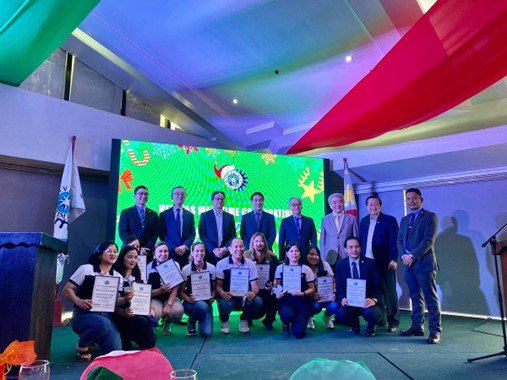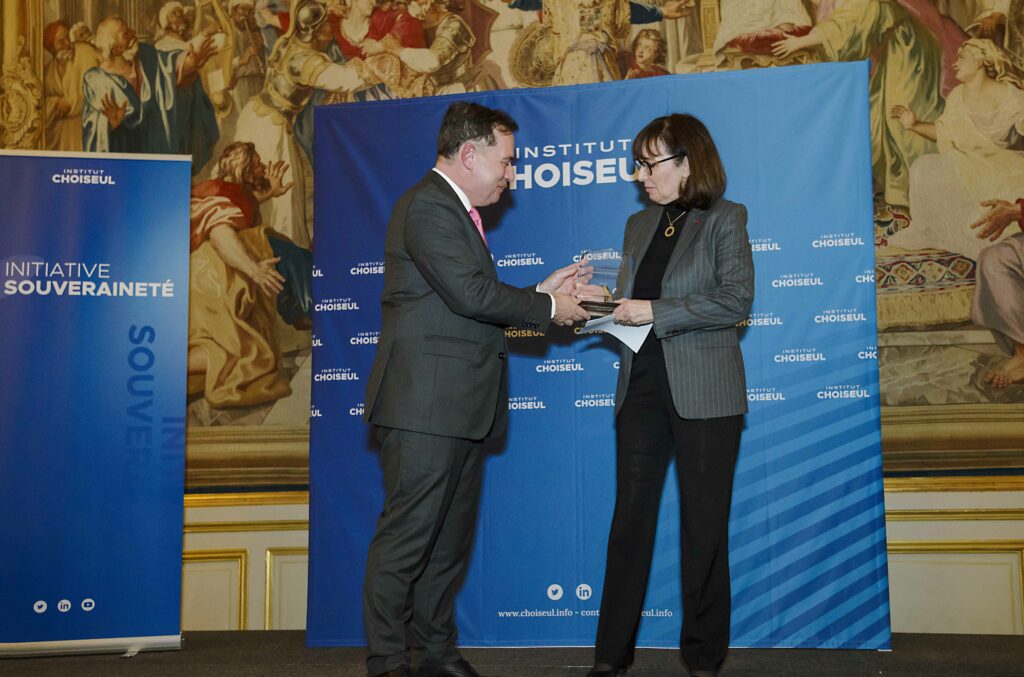Kawasaki Kisen Kaisha, Ltd. (“K” LINE) resumed team-building activities for seafarers in the Philippines, one of the major seafarer supplier countries, hosted by our related ship management companies in December which include seminars for LNG officers, a long-service award ceremony, and a Christmas event to which families were also invited, after refraining from face-to-face activities due to the global spread of COVID-19 that began in early 2020. Many of “K” LINE’s executives, including President Yukikazu Myochin, were in attendance.
President Yukikazu Myochin also visited the Maritime Industry Authority of the Philippines (MARINA) and met with Administrator Attorney Hernani N. Fabia, who reaffirmed “K” LINE’s policy of further strengthening educational activities for Filipino seafarers.
“K” LINE Group has decided to resume face-to-face events gradually, while keeping a close eye on COVID-19 situation. By building strong sense of mutual understanding with seafarers, who are the essential workers responsible for global marine transportation not only in the Philippines but around the world, and their families through face-to-face interaction, we aim to instill and mature our corporate culture (safety culture), which will lead to safe operations and the provision of high-quality transportation services.















